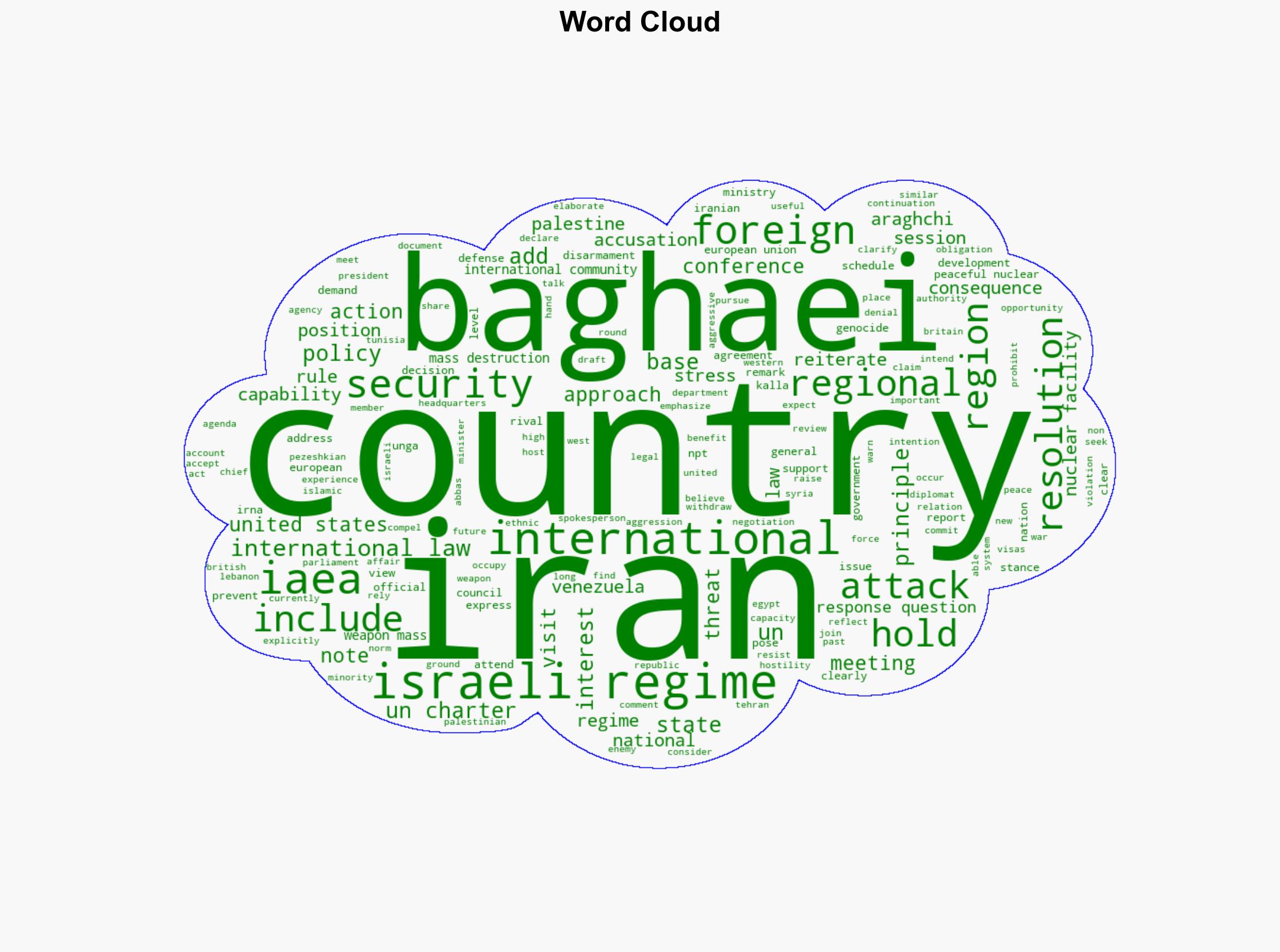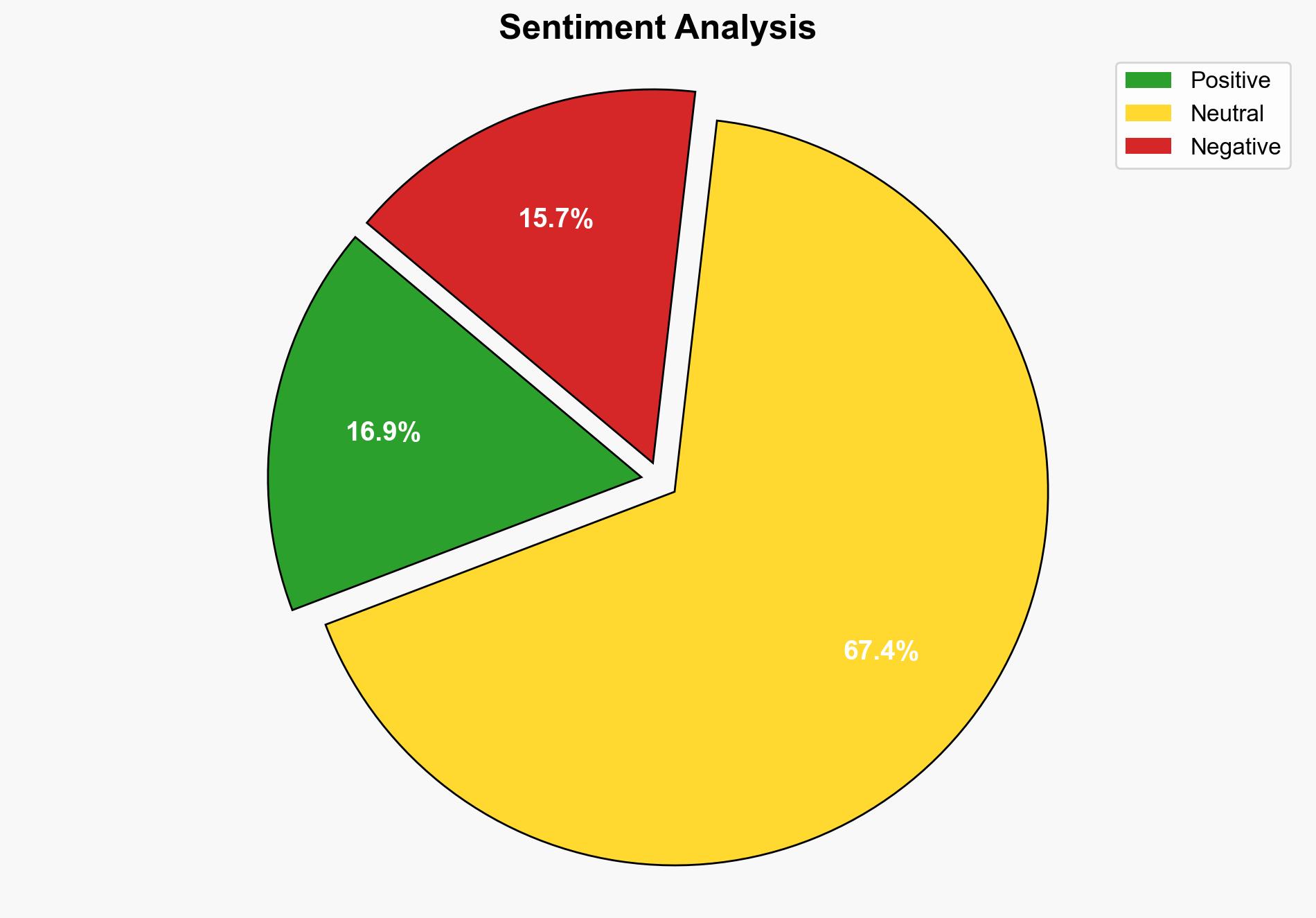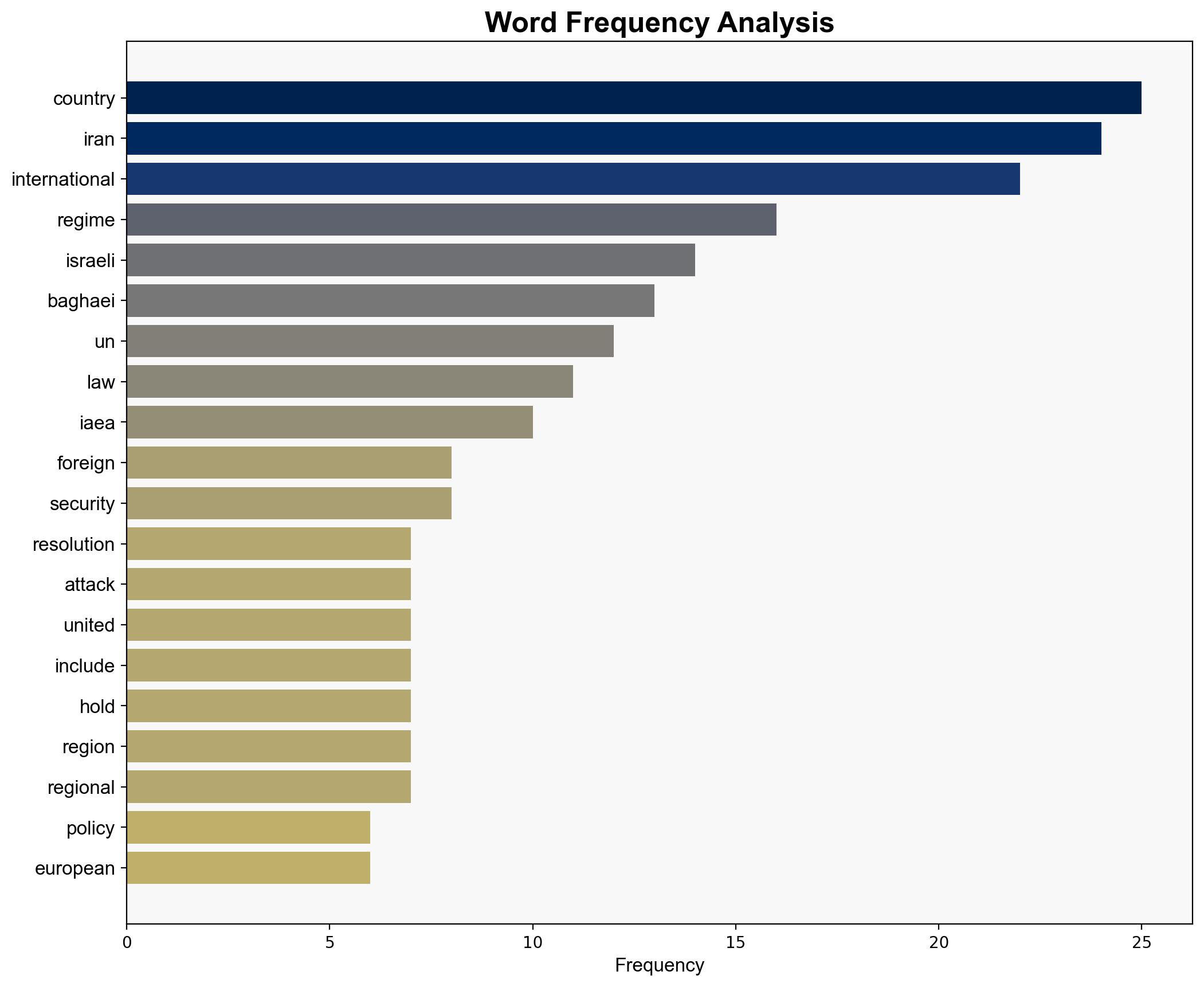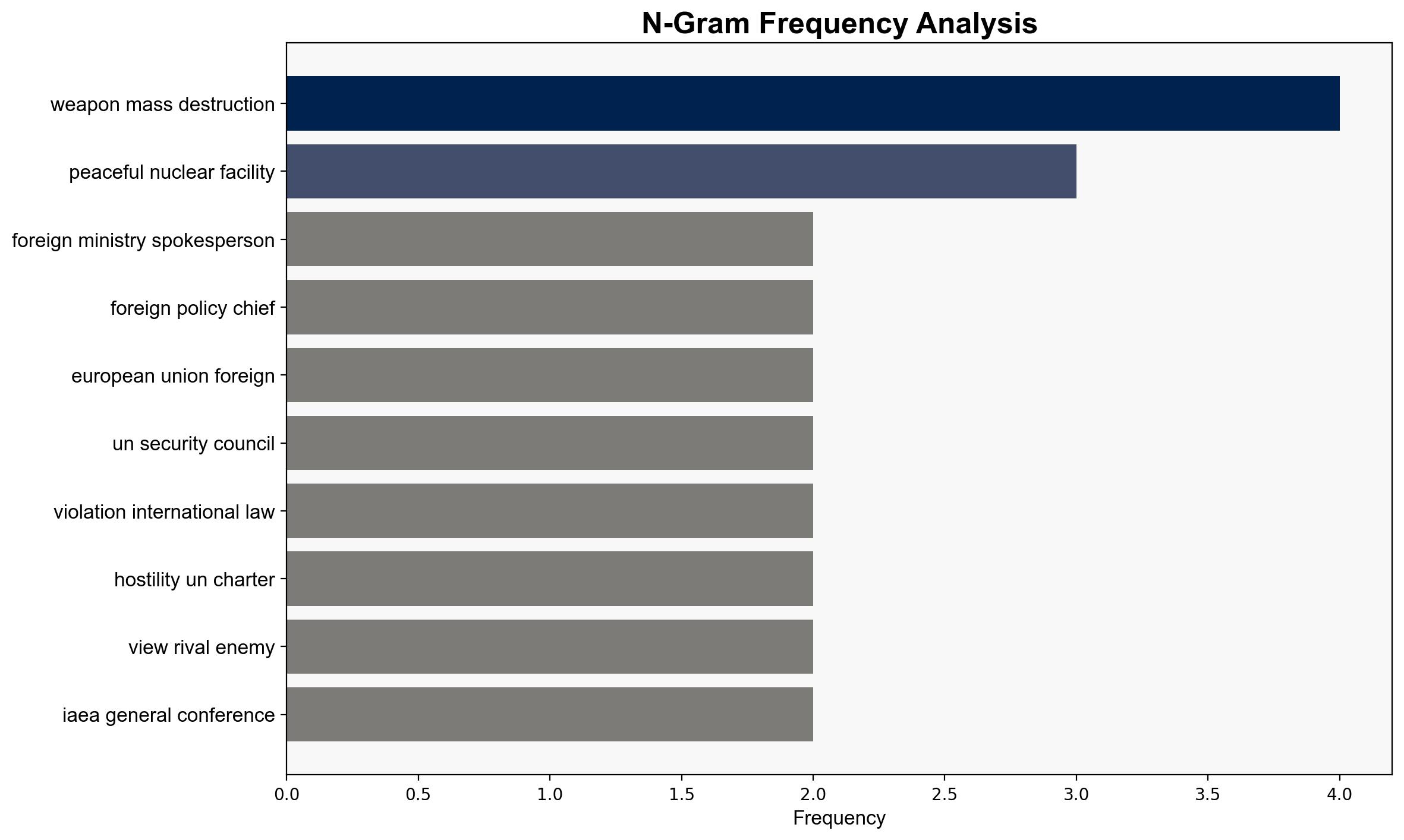Foreign Ministry spokesperson terms Araghchi’s meeting with EU foreign policy chief as ‘useful’ – Globalsecurity.org
Published on: 2025-09-09
Intelligence Report: Foreign Ministry spokesperson terms Araghchi’s meeting with EU foreign policy chief as ‘useful’ – Globalsecurity.org
1. BLUF (Bottom Line Up Front)
The meeting between Araghchi and the EU foreign policy chief is strategically positioned as ‘useful’ by Iran, potentially indicating a diplomatic maneuver to influence EU policy on Iran’s nuclear program. The most supported hypothesis is that Iran seeks to mitigate EU support for US-led sanctions and align more closely with EU interests. Confidence level: Moderate. Recommended action: Monitor EU-Iran interactions for shifts in policy or rhetoric that may indicate changes in alignment or strategy.
2. Competing Hypotheses
Hypothesis 1: Iran is genuinely seeking to improve relations with the EU to reduce tensions and gain support against US sanctions. This is supported by the emphasis on the meeting being ‘useful’ and the call for the EU to reconsider its stance.
Hypothesis 2: Iran is using diplomatic engagement as a strategic facade to buy time while advancing its nuclear capabilities. The rhetoric of the meeting being ‘useful’ serves to placate EU concerns without substantive policy shifts.
Using ACH 2.0, Hypothesis 1 is better supported by the explicit mention of the meeting’s usefulness and the expressed hope for a revised EU approach. However, Hypothesis 2 remains plausible given Iran’s historical pattern of using diplomacy to delay international pressure.
3. Key Assumptions and Red Flags
Assumptions include the belief that the EU is open to revising its stance and that Iran’s diplomatic overtures are sincere. A red flag is the lack of specific commitments or outcomes from the meeting, suggesting potential deception or strategic ambiguity. The absence of concrete EU responses also raises questions about the meeting’s actual impact.
4. Implications and Strategic Risks
If Iran successfully sways EU policy, it could weaken the US-led sanctions regime, altering the geopolitical balance. Conversely, failure to achieve diplomatic progress may escalate tensions, potentially leading to increased regional instability. The interplay between EU, US, and Iranian strategies could impact global energy markets and security dynamics.
5. Recommendations and Outlook
- Engage in diplomatic channels to clarify EU’s position post-meeting and assess any shifts in policy or rhetoric.
- Scenario-based projections:
- Best Case: EU mediates a new agreement that de-escalates tensions and aligns with international norms.
- Worst Case: Diplomatic efforts fail, leading to increased sanctions and potential military confrontations.
- Most Likely: Continued diplomatic engagement with incremental progress but no major breakthroughs.
6. Key Individuals and Entities
Abbas Araghchi, Esmaeil Baghaei, Kaja Kallas
7. Thematic Tags
national security threats, diplomacy, nuclear negotiations, EU-Iran relations




